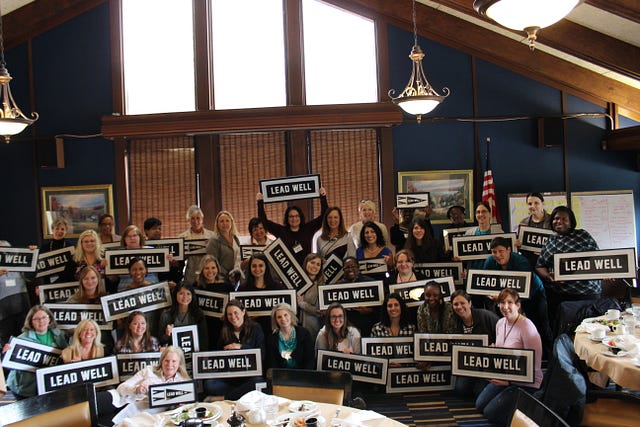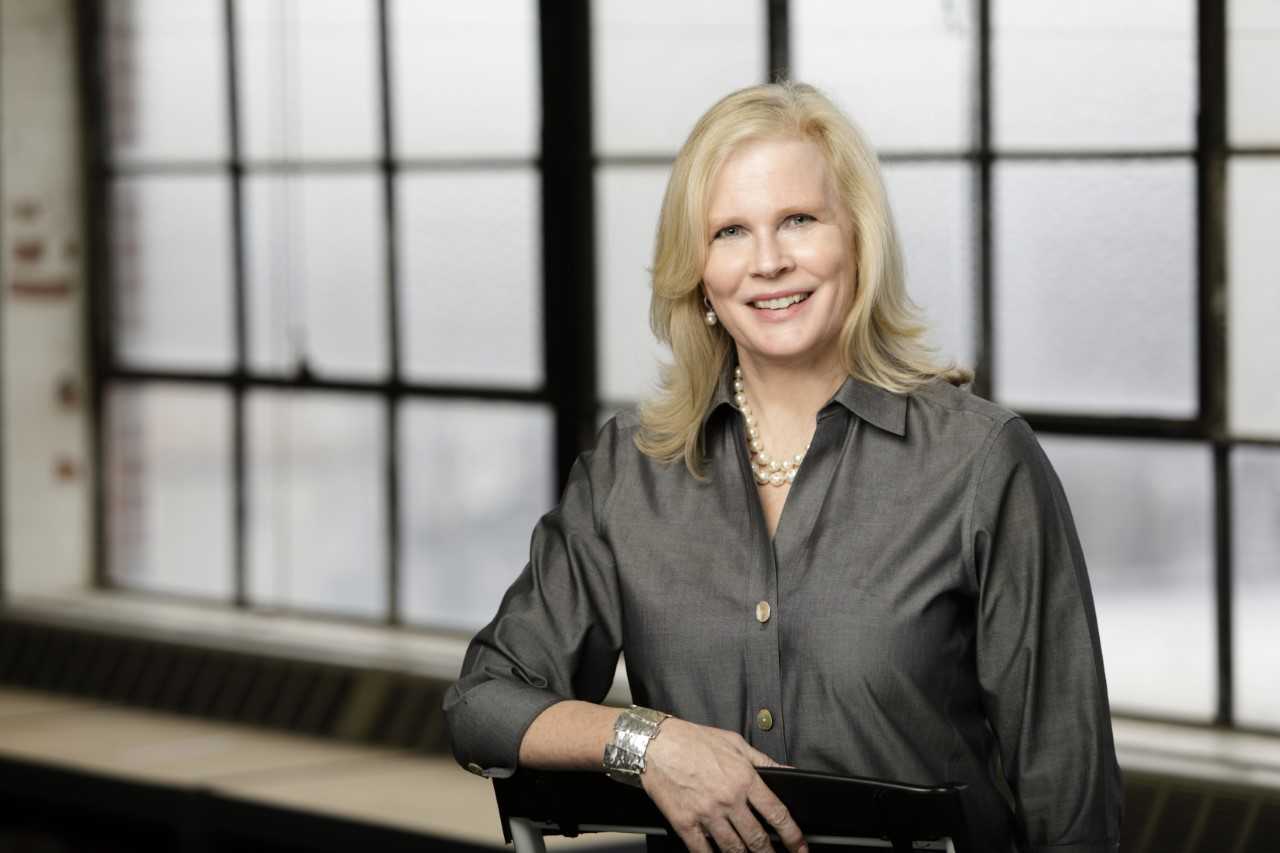As a part of my series about strong female leaders, I had the pleasure of interviewing Gretchen Fierle. Gretchen Fierle is retired from the health care industry where she held C-level positions for over 17 years. Previously senior vice president of marketing and communications at HealthNow New York (licensee of BlueCross BlueShield of Western New York, and BlueShield of Northeastern New York), she also served as vice president of communications and community relations at Independent Health. Gretchen was born and raised in Buffalo, New York and began her career in communications. Gretchen admits her path was never straight, and her career moves were based on developing skills and following her passions versus staying in a specific industry. She held leadership positions in economic development, advertising, and later as executive director of the Research Center for Stroke and Heart Disease, where her work began to draw national attention. Gretchen has retired out of health care to pursue her passion to help develop strong leaders. She has authored Volume I and II of a four-volume series called Fish Rot from the Head Down. Stories and lessons about leadership in 50 words or less. Gretchen is passionate about effective leadership. Although one has to be born with the ability to feel comfortable taking charge and leading others, she believes it takes life’s lessons — and the insights gleaned from them — to mold real leaders. To help support women, she founded 28HoursForMe, an immersive leadership retreat for aspiring women leaders and executives, facilitated by women who have retired out, or have reached the pinnacle of their careers. These include executives of global companies, CEOs, and presidents of colleges. Her goal is to do more than just help leaders support a company’s mission, vision, and values; she wants them to succeed, grow and advance so that they can be important leaders for and champions of others. Gretchen currently sits on the board of trustees of D’Youville College and the board of directors of the Buffalo Center for Arts and Technology, and Save the Michaels of the World. She has previously sat on the boards of the National Women’s Hall of Fame, Buffalo Philharmonic Orchestra, Horizon Corporations, Buffalo State Foundation, Erie County Youth Services, Catholic Charities, United Way of Buffalo and Erie County, and Mercy Hospital Foundation. She also served as board chair of Leadership Buffalo. Her work, and the work of the teams she has been fortunate to lead, have garnered national, state and local awards, including the region’s PainkillersKill campaign, a large collaborative project to help educate the community about opiate addiction. The outcomes of that collaboration yielded a significant increase in awareness of the dangers of painkillers, and garnered the prestigious PRWeek Community Relations Campaign of the Year (at the same time P&G won for its Mom campaign). The campaign’s results spurred the interest of the Blue Cross Blue Shield Association, which made opiate use and addiction their main community relations focus across the country. Gretchen has also led efforts that awarded BlueCross BlueShield of WNY two Best of Blues in integrated marketing from the Blue Cross Blue Shield Association. Gretchen is a graduate of Bard College. She graduated 300 out of 317 in her high school class. Yes, that is correct, 300 out of 317.
Thank you so much for doing this with us! Can you tell us a story about what brought you to this specific career path?
I have watched leaders all my life, having had a father who started a business from sleeping on a cot to building it into a $200-million company that Forbes magazine named one of the 200 best small businesses in America. I also watched my mother break glass ceilings before women even knew that term when she became the first woman president of a school board in Western New York. My passion for leadership has evolved and strengthened by understanding the huge responsibility that comes with it. Throughout my tenured career, I have come out of meetings wowed by the greatness of an effective leader. I have also come out of situations appalled by the rot fostered by an ineffective one. Both have been great teaching moments.
Can you share the most interesting story that happened to you since you began leading your company?
I invested $15,000 of my own money to launch 28HoursForMe, feeling I needed to prove its model was effective before asking for support. Through word of mouth, two large companies, Delaware North and Rich’s stepped forward to underwrite costs to ensure the experience was inclusive for any woman wanting to lead well. I didn’t have to write a proposal, or grant; women who walked out became huge and loud advocates. It was humbling.
Can you share a story about the funniest mistake you made when you were first starting? Can you tell us what lesson you learned from that?
WHERE DO I START? So many to pick from! I have a chapter in my book about making someone look like a hero or saving them from embarrassment. When in advertising, I was part of the team which handled M&T Bank, and the late billionaire banker, Robert G. Wilmers, had just taken the helm. I pitched the annual report with the head of our advertising agency in attendance. I was 26 years old. I walked into M&T’s board room, with executives sitting around a 40-foot table and pitched our idea of featuring the new leadership team. A gentleman challenged me that no one was interested and people don’t even read annual reports. My passion got away from me and I bet him $25 he was wrong. I looked at the head of our agency and knew I was going to be fired in the elevator. As we walked out, Mr. Wilmers, who knew me from Adam, said “Gretchen, you are doing a great job for us. Keep it up.” He saved my job that very moment. He was a great man and leader and I was forever grateful for what he did for me.
What do you think makes your company stand out? Can you share a story?
I am authentic, honest, passionate, transparent, and have no ego. And my books’ lessons include mistakes I have made. I start our women’s retreat with an ice breaker where I ask everyone to share some things about themselves including something they wouldn’t normally share. I start. Last retreat I said “I have been married twice — the first one gave me children; they second gave me my life back. I haven’t interviewed for a job since I was 21, have been promoted 10 times and fired twice.” That honesty opened a huge door for others to share. We are all human and trust was built among us immediately. Once trust is built, conversations can go deeper and be more immersive — with solution, not revolution in mind. I think that makes my work very unique.

Are you working on any exciting new projects now? How do you think that will help people?
I think I have cracked the code to building a collaborative culture that helps a company succeed — not costing millions of dollars I’ve seen wasted in expensive consultants. I think simply, and the simpler one gets, the easier it is to see the forest through the trees. It’s a four step process: (1) Leadership selects chapters from my books they want everyone in the company to emulate. (2) Teams come together and discuss what chapters or behaviors they need to start, stop or keep doing to help. They select three to work on for the next 3 months (3) individuals select chapters and behavior to personally work on. They select three to work on for the next 3 months (4) we come together again to report out and discuss. This is not an isolated exercise; teams come from all over the company — from operations to finance to maintenance. I have seen its magic in voices having been heard and respected. And that every associate is asked to lead change. No top down. Totally inclusive with titles left at the door. And there is accountability because they know we will get together in 3 months to hold each other accountable. And then we keep that process going! That is all that is needed as long as leadership believes. Culture doesn’t come from brochures, words on a page or wall, or talking heads.
What advice would you give to other female leaders to help their team to thrive?
The same advice I’d tell men: keep your ego in check. Leadership is never about you. Find talent and build it. Work to work yourself out of a job, even if you don’t. Be humble. Keep your door open. Leave titles at the door so everyone can help with and then celebrate success. Don’t micro-manage. Frame goals and expectations, provide tools for success, and then transfer responsibility. Pretty much what all my chapters say! I believe to my core if every leader followed what I have written, they would go from good to better to great. ONE BIG PIECE OF ADVICE FOR WOMEN: Walk through it, don’t step in it. It is still a man’s world; don’t get aggravated — just keep walking through those situations which may be offensive. MY BIGGEST PIECE OF ADVICE? Interview as hard as you are interviewed. Make darn sure you fit with the culture of the organization, those you will work with, and the one you’ll report to. We can’t do our best if there isn’t that fit.
What advice would you give to other female leaders about the best way to manage a large team?
Spend time with them. Find out what makes their heart sing and where they want to go with their profession. I have turned around departments from low performing to high performing, garnering the highest employee and leadership scores year after year. It’s not about kicking people off the bus — it’s about making sure they are sitting in the right seats. Be clear on goals and expectations, and then let them find their own way to accomplish them. Micro managing is a KILLER. I had a weekly memo I sent out to keep everyone up-to-date with what was happening, as well as celebrating success. It meant a lot because it’s easy for tribes to form if people don’t feel like part of a total team. No matter the size of a company.
None of us are able to achieve success without some help along the way. Is there a particular person who you are grateful towards who helped get you to where you are? Can you share a story about that?
I really didn’t have any mentor in my early years. I was thrown into the deep end of the pool and had to figure it out on my own. The world is much different now. Leadership Buffalo, where I walked into a network of over 2,000 leaders, was life changing. We had a code of conduct that any call from an “LBer” must be returned within 24 hours. I was able to access so much talent who helped guide me, mentor me, assist me, and make me better. My career soared.
How have you used your success to bring goodness to the world?
I believe in paying it forward in a BIG WAY. My passion is to help create the next wave of GREAT leaders who will eventually knock the poor ones off their block. When that happens, many will be the great beneficiaries and can then be free and encouraged to pursue their passions, build their careers, leverage their talents, and make a difference. And through it all, feel rewarded and acknowledged. I also sit on community boards. I always will. And I am one to never see obstacles to achieve something important — like the PainKillers Kill campaign.
What are your “5 Leadership Lessons I Learned From My Experience” and why. (Please share a story or example for each.)
I have 50 of them in my first two volumes of Fish Rot from the Head Down. Someone or a situation inspired me to write them all. So I will pick my favorite 5:
· EGO IS EXHAUSTING. LEAVE IT AT THE DOOR. We all know ego when we see it. We all hate being around it. We all feel strangled by it. Unless it’s us who has it. And if so, everyone else around us knows it. And they don’t like being with us. Let alone being led by us.
· WE’VE ALL HAD OUR LEGS LIFTED AND OUR FANNIES WIPED. Humility. We don’t know it all. Anyone may have ideas or solutions. Create an environment that allows voices to be heard, encourages conversation, debate, and challengers. That’s when we get to great. People may need to process — but if they’re always quiet, they often don’t feel safe, or included.
· FINANCIAL HEALTH IS TABLE STAKES. IT ISN’T THE NORTH STAR. I’ve seen leaders spend most of their time discussing finances rather than focusing on what makes a company extraordinary. We should spend most of our time talking about what moves a product, service, or an idea from good to better to great. With Mission, Vision, and Values front and center.
· EXCELLENCE. ALWAYS. Wise words shared with me: “You do something to be the best at it.” We’ve all been gifted with unique and special talents. Let’s honor our talent by never settling for anything less than the best we can give. Our customers and company deserve it. We owe them our paychecks.
· TITLES ARE BESTOWED. BUT RESPECT IS EARNED. We may be given big titles, authority, make money, sit on boards, oversee others, manage big budgets, and work for big name brands. But none of that matters if we haven’t earned the respect of others. Without authentic followership, the word leader does not exist. (Watch Saving Private Ryan and take note of the last words uttered by Tom Hanks.)
You are a person of great influence. If you could inspire a movement that would bring the most amount of good to the most amount of people, what would that be? You never know what your idea can trigger. 🙂
Get rid of lobbyists that breed “corporatism” vs capitalism. Corporatism is broken, not capitalism which promotes free markets and competition which aspires to achieve the highest standard of living to the most people at the lowest cost. For every congressman/woman, there is an average of 500 lobbyists! Think of how that money could be spent to help our communities! Marci Rossell, former chief economist for CNBC really drove this thought home for me.
Can you please give us your favorite “Life Lesson Quote”? Can you share how that was relevant to you in your life?
“Titles are bestowed but respect is earned.” It really says it all, doesn’t it? My second favorite is “Circumstances don’t make the man, they reveal him.” We can all behave well when things are going our way but when we are challenged, how we behave reveals who we are.
Some of the biggest names in Business, VC funding, Sports, and Entertainment read this column. Is there a person in the world, or in the US with whom you would love to have a private breakfast or lunch with, and why? He or she might just see this if we tag them 🙂
Hands down, Mary Barra, CEO of General Motors. Everything she says and does reflects my own thinking. However, instead of having breakfast, I would love to shadow her for a week and watch and learn how she effectively leads (OK, I’d settle for a day!)


